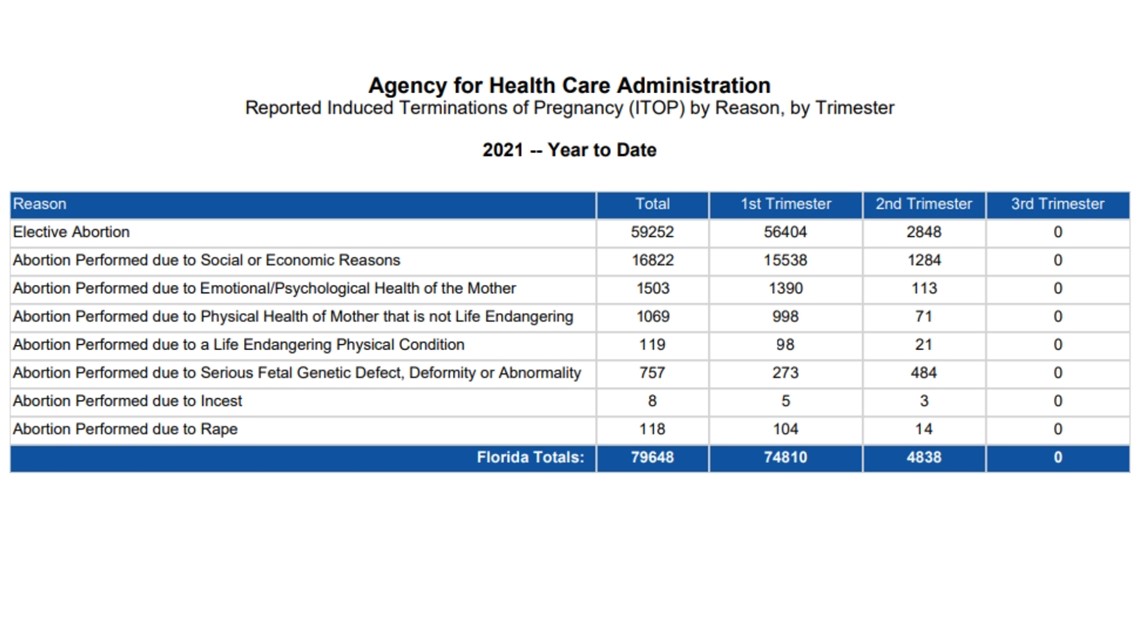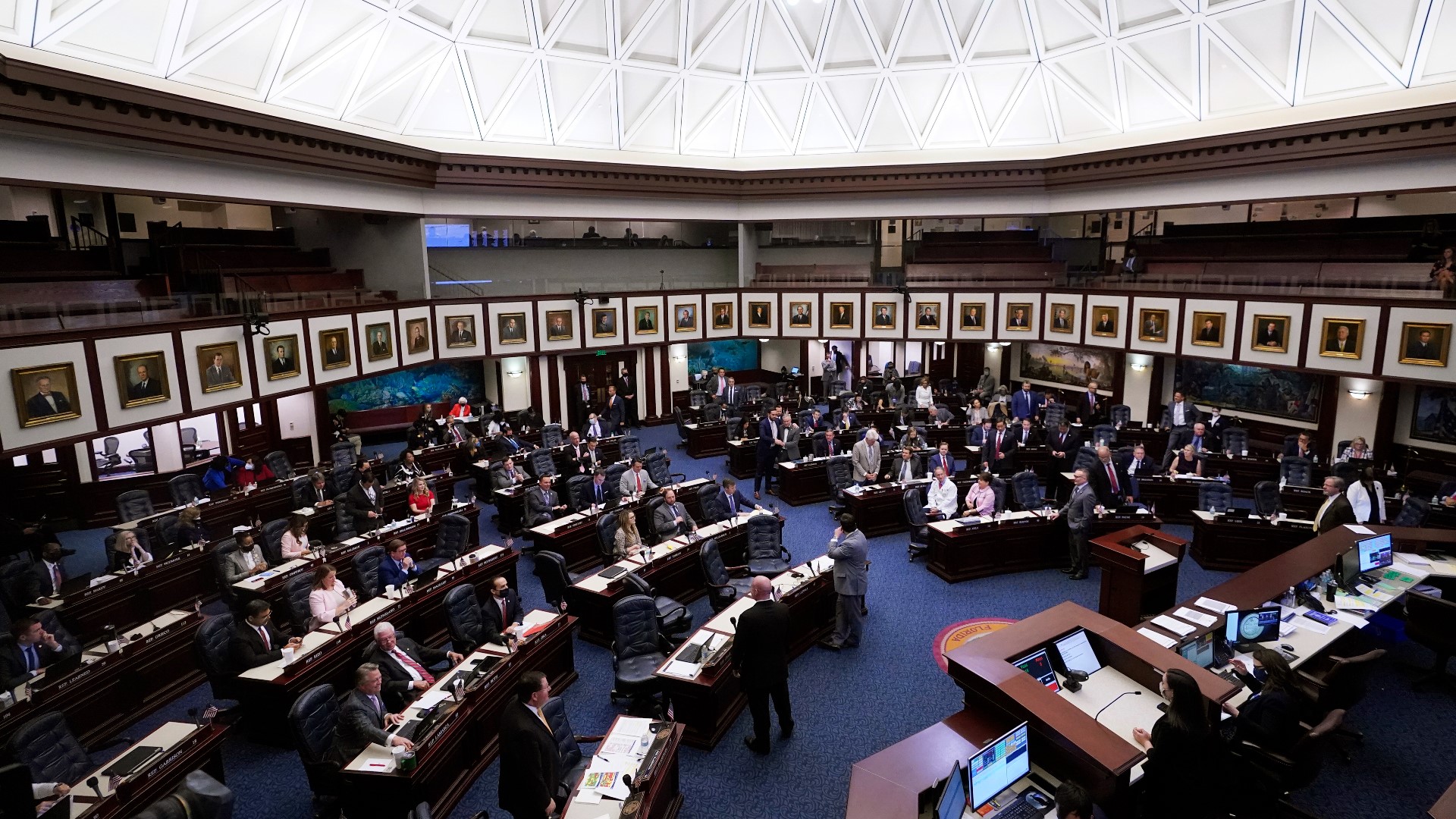TAMPA, Fla. — Late Thursday night, Florida lawmakers voted to pass a controversial bill effectively banning abortions at 15 weeks.
Now, it's onto Gov. Ron DeSantis' desk for final approval — a sure bet, as the governor has already called the bill "reasonable" and "supportive of protecting life."
The legislation bans abortion if a doctor finds the gestational age of the fetus is more than 15 weeks. Exceptions are allowed if the woman's life is considered to be in danger or if the fetus is considered to have a "fatal fetal abnormality."
The bill does not allow exceptions for rape or incest.
While critics of the legislation call it an encroachment on women's fundamental rights and access to reproductive healthcare, it is a far cry from "heartbeat" bills in other states, like Texas, that prohibit abortions as early as six weeks — before many women even know they're pregnant.
This has led some to question how the 15-week abortion ban would really look if it becomes Florida law.
Here's a look at the numbers.
According to the Centers for Disease Control and Prevention's Abortion Surveillance System, 629,898 legal induced abortions were reported in the U.S. in 2019, which represents the most recent data available.
Of those, 92.7 percent were performed at or before 13 weeks. Meaning the sweeping majority of abortions in the U.S. wouldn't be affected by the proposed 15-week ban.
The Agency for Health Care Administration has an ever closer look at Florida's numbers.
According to AHCA, 79,648 abortions were performed in Florida in 2021.
Of those, 74,810, or 93.9 percent, were performed in the first trimester, meaning through the end of the 11th week of gestation — another large majority that Florida's proposed bill wouldn't touch.
The agency kept a record of the reported reasons for abortions that took place in 2021.


The table shows elective abortions as the top reason, followed by social or economic reasons and emotional/psychological health of the mother as reasons number two and three.
The data shows 484 second-trimester abortions were performed due to "serious fetal genetic defect, deformity or abnormality" while 21 were performed due to a "life endangering physical condition."
According to AHCA, in 2021, 14 second-trimester abortions were performed due to rape while three were performed due to incest.
Still, a law banning abortion at 15 weeks would be a drastic difference from the rights guaranteed by the U.S. Supreme Court's decision in Roe v. Wade, which protects a woman's choice to have an abortion until a fetus reaches the point of viability outside the womb.
And, as The Washington Post writes, some people say legislation like the 15-week abortion ban bill is intentionally presented as a compromise, to pave the way for future GOP-led legislatures to enact stricter laws in the future.
If Gov. DeSantis signs this bill into law in Florida, it would take effect on July 1.
But it’s not that simple.
The U.S. Supreme Court is expected to rule in June on Mississippi’s abortion ban, which is very similar to what has been proposed in Florida.
Louis Virelli is a professor of constitutional law at Stetson University College of Law and provided sharper insight. He says even if the U.S. Supreme Court upholds Mississippi’s ban, that is not the end of the story if the Florida ban becomes law.
"That means the Florida statute will still be challenged under the Florida constitution and the right to abortion in Florida is stronger than the right to abortion in the country as a whole. The Florida constitution protects the right to end a pregnancy better or more rigorously than the U.S. constitution does,” he said.
Virelli says to survive under the Florida Constitution, there has to be a compelling government interest and be the least restrictive means of achieving that interest.
He says, over the year, the court has not viewed protecting a fetus in the first trimester as a compelling government interest.

